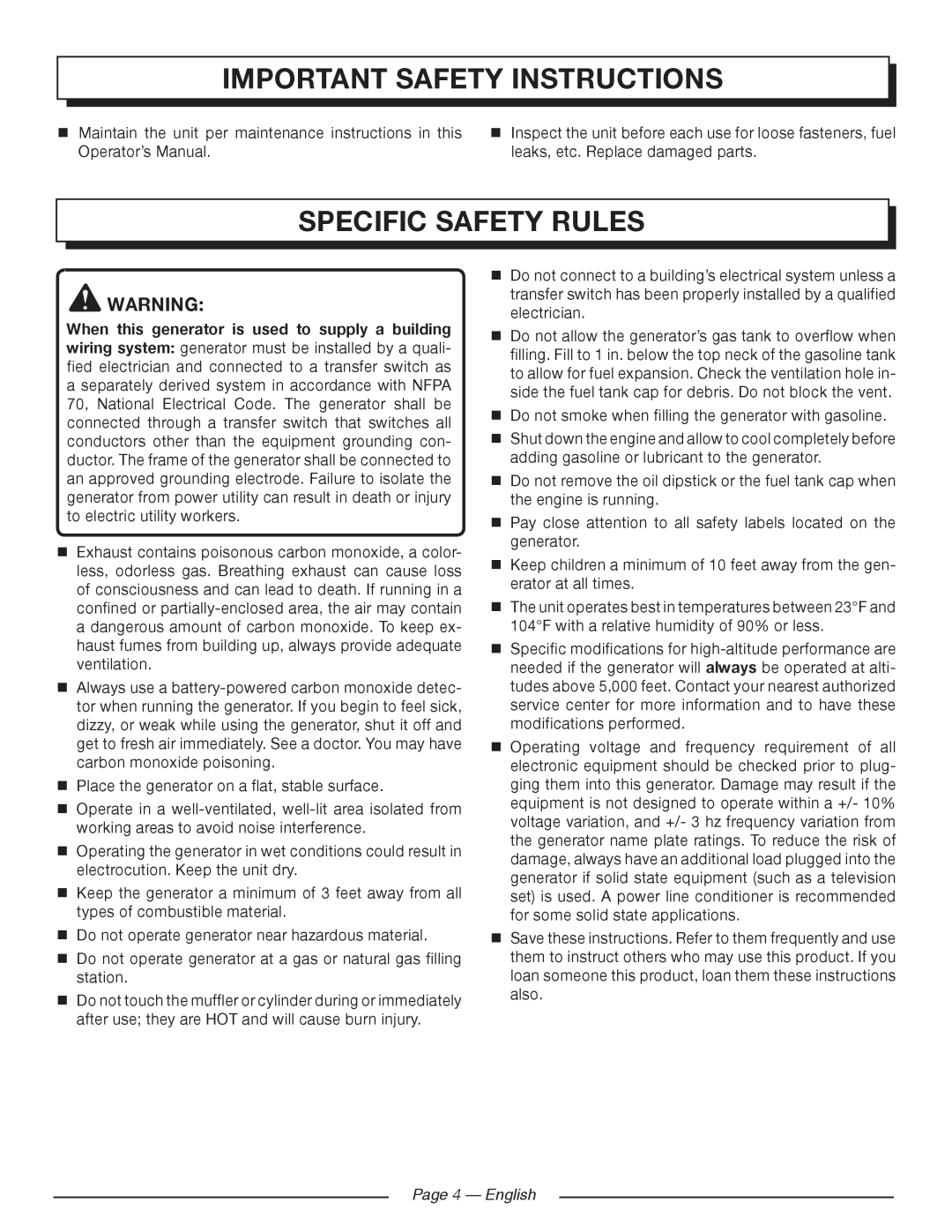
important safety instructions
Maintain the unit per maintenance instructions in this | Inspect the unit before each use for loose fasteners, fuel |
Operator’s Manual. | leaks, etc. Replace damaged parts. |
SPECIFIC SAFETY RULES
![]() WARNING:
WARNING:
When this generator is used to supply a building wiring system: generator must be installed by a quali- fied electrician and connected to a transfer switch as a separately derived system in accordance with NFPA 70, National Electrical Code. The generator shall be connected through a transfer switch that switches all conductors other than the equipment grounding con- ductor. The frame of the generator shall be connected to an approved grounding electrode. Failure to isolate the generator from power utility can result in death or injury to electric utility workers.
Exhaust contains poisonous carbon monoxide, a color- less, odorless gas. Breathing exhaust can cause loss of consciousness and can lead to death. If running in a confined or
Always use a
Place the generator on a flat, stable surface.
Operate in a
Operating the generator in wet conditions could result in electrocution. Keep the unit dry.
Keep the generator a minimum of 3 feet away from all types of combustible material.
Do not operate generator near hazardous material.
Do not operate generator at a gas or natural gas filling station.
Do not touch the muffler or cylinder during or immediately after use; they are HOT and will cause burn injury.
Do not connect to a building’s electrical system unless a transfer switch has been properly installed by a qualified electrician.
Do not allow the generator’s gas tank to overflow when filling. Fill to 1 in. below the top neck of the gasoline tank to allow for fuel expansion. Check the ventilation hole in- side the fuel tank cap for debris. Do not block the vent.
Do not smoke when filling the generator with gasoline.
Shut down the engine and allow to cool completely before adding gasoline or lubricant to the generator.
Do not remove the oil dipstick or the fuel tank cap when the engine is running.
Pay close attention to all safety labels located on the generator.
Keep children a minimum of 10 feet away from the gen- erator at all times.
The unit operates best in temperatures between 23°F and 104°F with a relative humidity of 90% or less.
Specific modifications for
Operating voltage and frequency requirement of all electronic equipment should be checked prior to plug- ging them into this generator. Damage may result if the equipment is not designed to operate within a +/- 10% voltage variation, and +/- 3 hz frequency variation from the generator name plate ratings. To reduce the risk of damage, always have an additional load plugged into the generator if solid state equipment (such as a television set) is used. A power line conditioner is recommended for some solid state applications.
Save these instructions. Refer to them frequently and use them to instruct others who may use this product. If you loan someone this product, loan them these instructions also.
